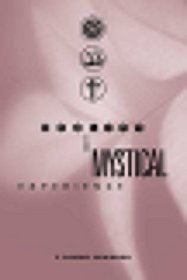Search -
Reality and Mystical Experience
Reality and Mystical Experience
Author:
A philosophical inquiry that explores the role and limitations of discursive reason in understanding ultimate reality. “Samuel Brainard develops a critical language based on a lucid and constructive definition of 'publicity' and 'presence.' He then uses these concepts to engage the Buddhist, Hindu, and Christian traditions in a manner that... more »
Author:
A philosophical inquiry that explores the role and limitations of discursive reason in understanding ultimate reality. “Samuel Brainard develops a critical language based on a lucid and constructive definition of 'publicity' and 'presence.' He then uses these concepts to engage the Buddhist, Hindu, and Christian traditions in a manner that... more »
ISBN-13: 9780271019734
ISBN-10: 0271019735
Publication Date: 1/2000
Pages: 320
Rating: ?
ISBN-10: 0271019735
Publication Date: 1/2000
Pages: 320
Rating: ?
0 stars, based on 0 rating
Publisher: Pennsylvania State University Press
Book Type: Paperback
Other Versions: Hardcover
Members Wishing: 0
Reviews: Amazon | Write a Review
Book Type: Paperback
Other Versions: Hardcover
Members Wishing: 0
Reviews: Amazon | Write a Review
Genres:
- Arts & Photography >> Individual Artists >> ( A-C ) >> Beardsley, Aubrey
- Biographies & Memoirs >> General
- History >> Europe >> England >> 19th Century
- History >> Europe >> England >> 20th Century
- Nonfiction >> Philosophy >> Religious




